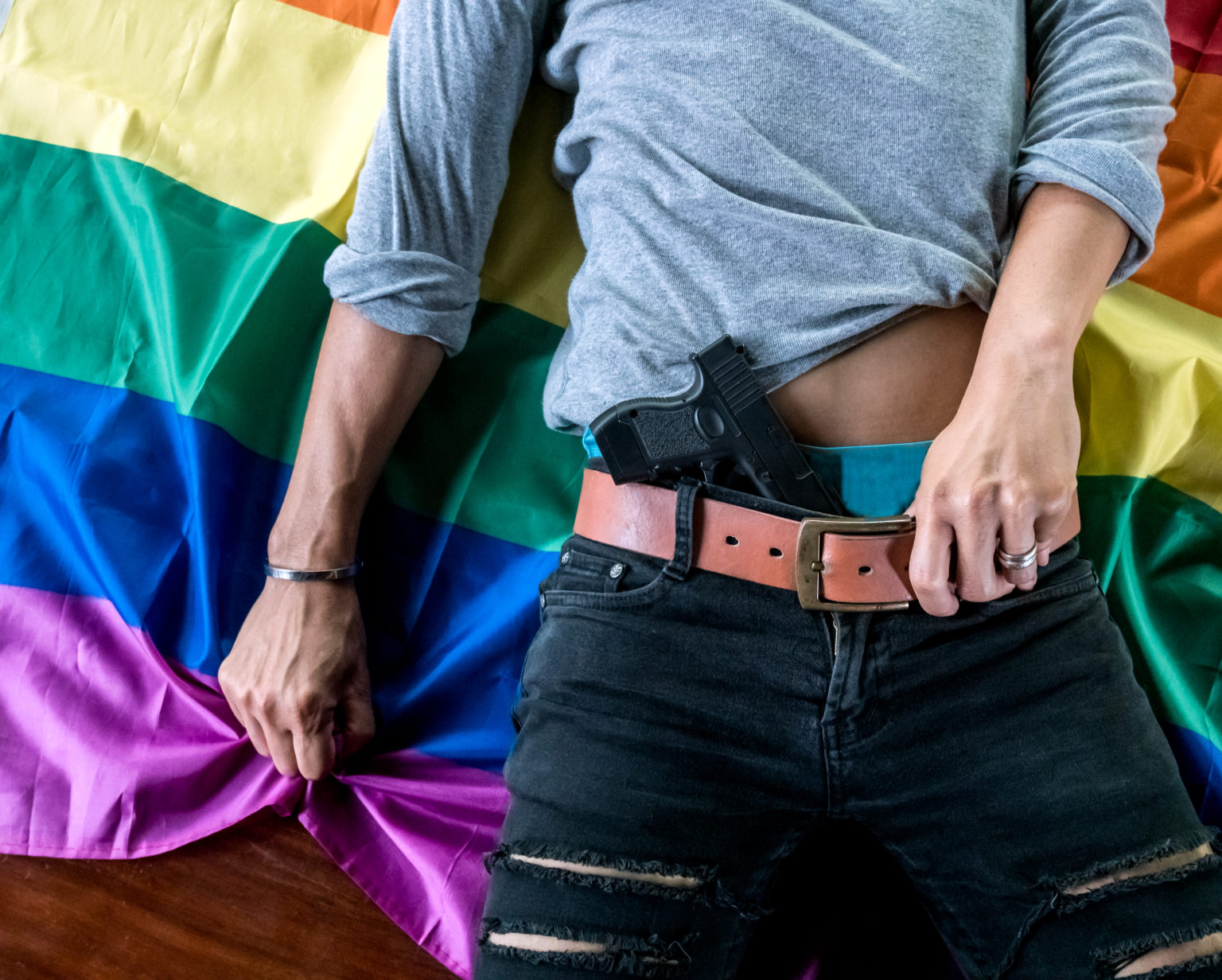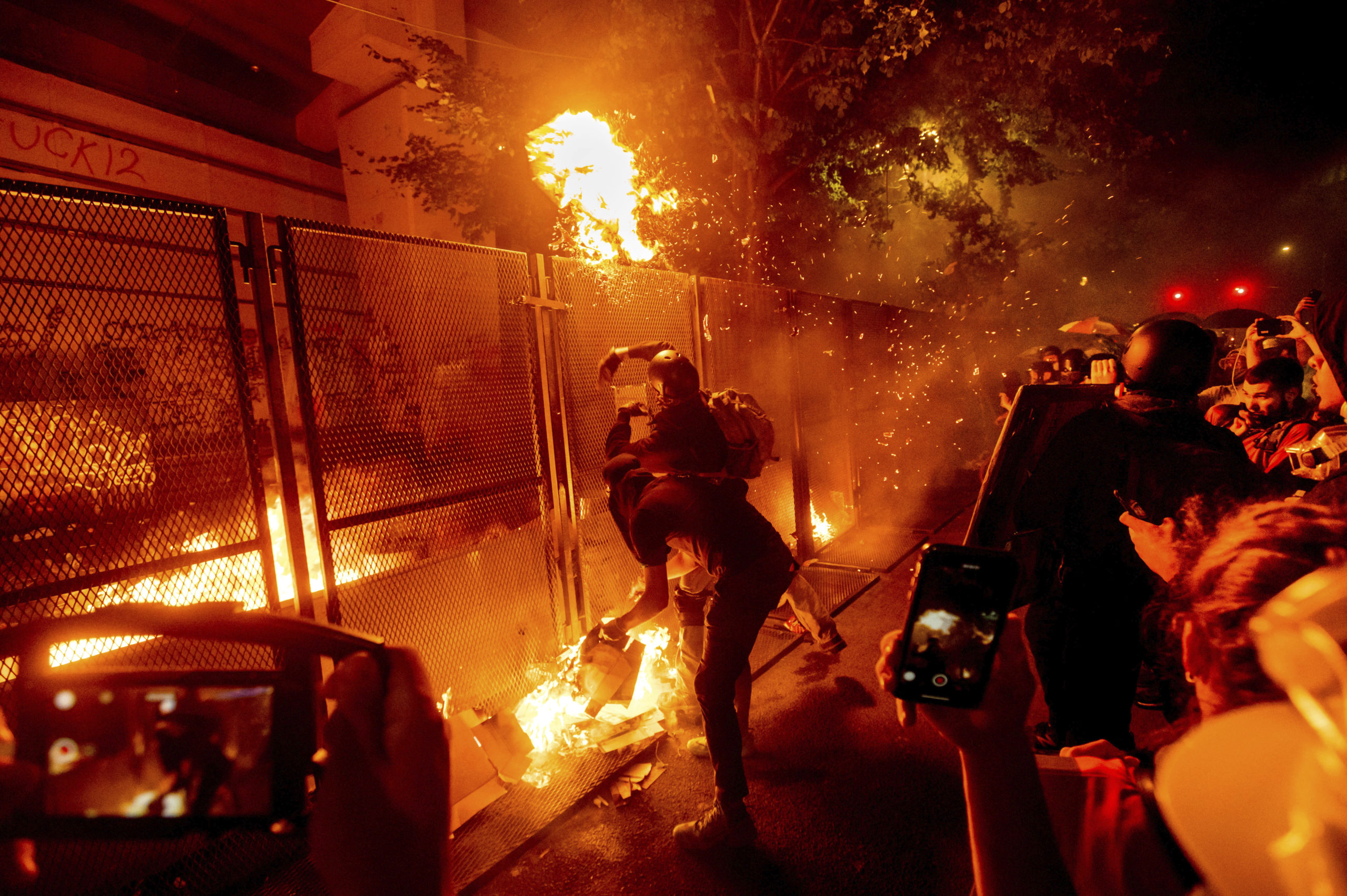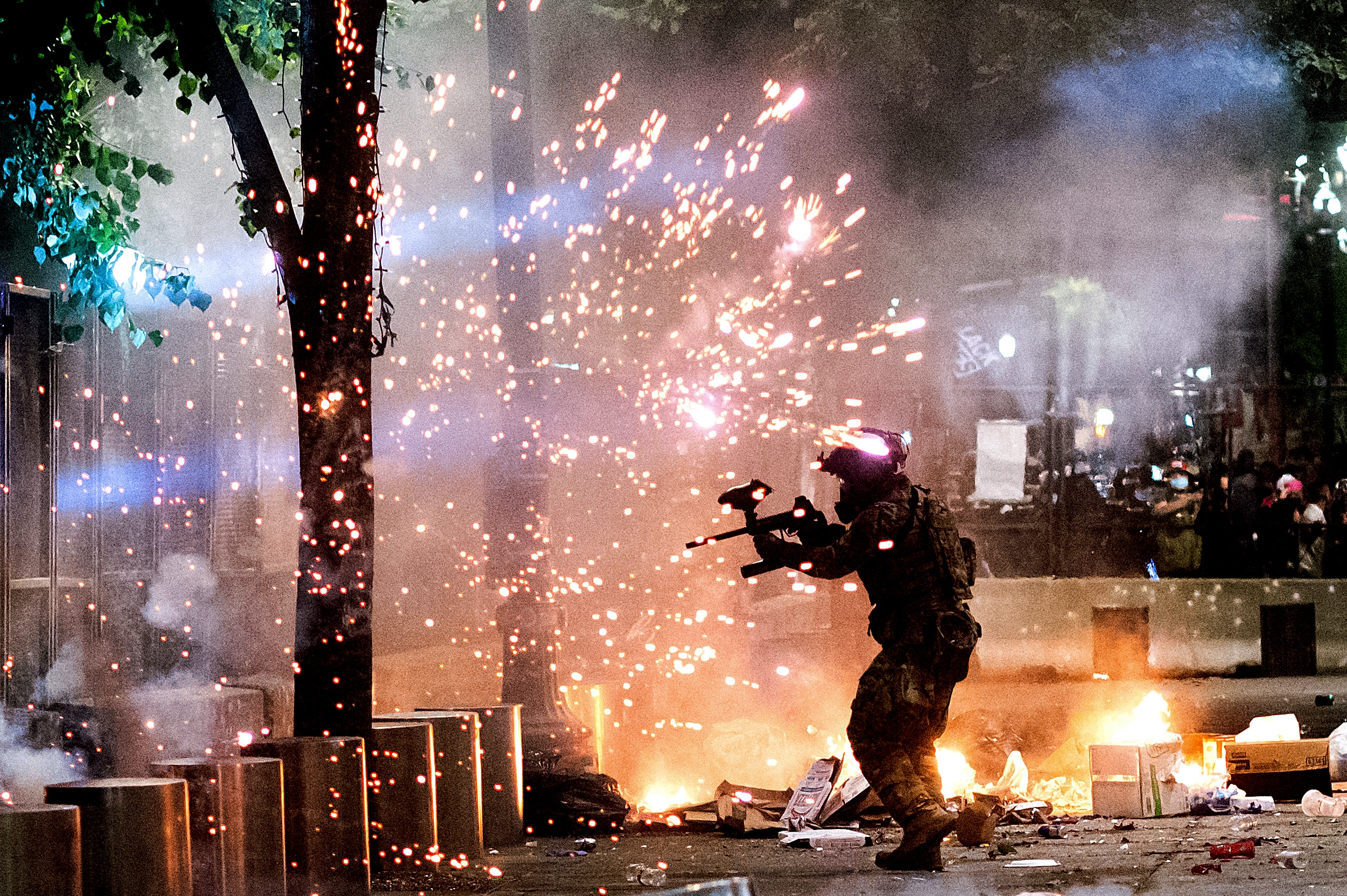
Despite the fact that a judge has put a temporary restraining order on Oregon’s Ballot Measure 114, NPR is highlighting an allegedly marginalized group who the “news” agency claims would be disproportionately affected by the new gun control law. Some members of Oregon’s LGBT community say they worry the new gun buyer licensing feature of the law that would give police discretion over who can and can’t buy firearms could block them from buying needed self-defense tools.
You don’t say.
Especially at this time of year, we have only one response to that . . .
According to NPR’s intrepid reporting, some in the “trans and queer” community worry that prior arrests during the massive rioting that rocked Portland in 2020 and into 2021 might preclude approvals to buy guns in the future.
Who could have possibly foreseen that rioting, burning, and looting could potentially cause problems later in life, whatever your sexual preferences?
From NPR . . .
Some of Oregon’s trans and queer gun supporters are worried that a new state law will prevent them from buying firearms.
The law, Measure 114, grants county sheriffs and police chiefs discretion to determine who qualifies to purchase a firearm under a new permit-to-purchase program.
But Measure 114 lacks criteria clearly defining what disqualifies applicants, details on what makes someone a threat and what data can be used by law enforcement in making that decision. That’s a problem for activists who have critiqued law enforcement, particularly in the racial justice protests that took place over the past two years.
By “racial justice protests” NPR must mean the mostly-peaceful riots in which Antifa and friends tried to burn down police stations and federal court houses.


Others worry about their social media posts being used to deny them permits to purchase firearms.
“I just feel like if I was to go online and say like the police are terrorists or something … [the police] would be like, ‘Well, you seem like you might not be fit for this community to be armed,’ ” says Mia Rose, a trans person of color and former licensed firearms dealer. “If they were to get that information that you got snatched up off the street [arrested during the Portland protests prompted by the killing of George Floyd in 2020], I would assume that the law would say they could deny your purchase, or deny your right to have a permit.”
If convicted of a felony, then yes. Yes they could.
Rose focuses her efforts on sales and training for LGBTQ+ and black, Indigenous and people of color (BIPOC). She said she and her friends were initially drawn to guns out of fears that grew during the Trump presidency. Recent shootings like those in the LGBTQ Club Q last month in Colorado Springs, Colo., that left 5 dead or at a school in Uvalde, Texas, in May that killed 19 students and 2 teachers have solidified their desire for armed community defense – they feel police are not there to protect them, or even willing to protect them.
So much woke concern trolling in one story.
“Given abuses widely documented among law enforcement, [Measure 114] would create an environment ripe for further corruption,” Eliot says. “Police could easily restrict permits to preferred individuals and deny others without oversight to determine if people from particular racial or ethnic groups, religious backgrounds, LGBTQ status or political affiliations were being screened out.”
It’s nice to see Oregon’s wokies now waking up to this. It’s absolutely adorable to watch them discover that giving government bureaucrats discretion over who can and can’t exercise their constitutional rights can lead to arbitrary decisions, discrimination, and outright corruption.
Proponents of the law say it came as a response to mass shootings and hate crimes. Liz McKanna, chairwoman of Lift Every Voice Oregon, the group that wrote Measure 114, highlights that states that have passed similar laws have statistically shown decreases in gun deaths and injuries.
There are similar laws on the books in Chicago (706 homicides and counting) where they’re working out extremely well.
McKanna discounted the concerns about police bias.
Of course she did. Surely a few arbitrary rights denials by government functionaries can’t be too much of an inconvenience. If it saves just one life….
On one hand, we welcome Oregon’s newly aware marginalized communities to the gun rights fraternity. There’s plenty of room here for everyone and you’re all welcome. On the other hand, I hope you won’t be confusing speech with violence and violence with speech any time soon.


